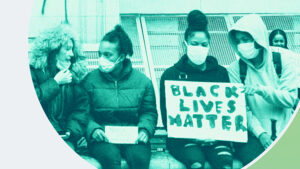Panel 2: The Imperative for Racial and Economic Justice
Event Actions

The recent months have shined light on structural inequities that have wracked societies across the globe for decades. Since the killing of George Floyd, the recognition of systemic racism in institutions of government and society has rippled outward from North America to the rest of the world. The Covid-19 pandemic has had an especially pronounced effect on those of lower socioeconomic status, who may not be able to afford top-of-the-line medical care or the ability to work from home. This panel will discuss the barriers to entry for youth of certain racial or socioeconomic backgrounds in activism, provide calls to action for movements of racial and economic justice, and explore whether there can be a unified vision for racial and economic justice that transcends national context and jurisdiction.
